Refrigerator filters are fantastic at giving you a supply of clean, refreshing water on demand. However, they can occasionally start leaking, which can not only be frustrating but also cause water damage and potentially affect the quality of your drinking water. It is important to understand why your refrigerator filter is leaking, and what you can do to fix it.
Your refrigerator filter could be leaking because of faulty installation, damaged gasket, clogged filter, cracked filter housing, or faulty valves/connections.
In this post, we are going to discuss the major reasons why your refrigerator filter might be leaking. We will also provide you with information on the steps you can take to diagnose the issue and to resolve the problem. Further, we will offer brand-specific insights for popular refrigerator brands (including Samsung, Whirlpool, GE, LG, Frigidaire, and Maytag).
Let’s get started!
Parts of A Refrigerator Filter
To understand how a refrigerator filter might leak, we should first take a closer look at its key components and their roles in the filtration process.
- Filter Cartridge
The filter cartridge is the main element of a refrigerator filter. Typically made of activated carbon, this is the part responsible for removing impurities, contaminants, and odors from the water.
- Filter Housing
The filter housing is the protective casing for the filter cartridge. It holds the cartridge securely in place and also creates a seal to prevent leaks. It is designed with inlet and outlet ports to facilitate water flow through the filter cartridge.
As you can probably guess, an issue with the housing could easily lead to leakage from your refrigerator filter.
- O-Ring or Gasket
The O-ring, also known as the gasket, is a ring made of rubber or silicone. You can find it between the filter cartridge and the filter housing, and its main job is to provide a watertight seal when water passes through the filter cartridge. Over time, it may wear out or become damaged, leading to leaks.
- Water Inlet and Outlet
As the names clearly imply, the water inlet and outlet are the entry and exit points for water into and outside of the filter housing. The inlet is connected to the water supply line, while the outlet directs filtered water to the refrigerator dispenser or ice maker.
Both of these are common locations from where leaks can originate.
How does a Refrigerator Filter Work?
At first, water enters the refrigerator filter through the water inlet and then flows into the filter housing. Then, the filter cartridge, with its porous structure and filtration media, traps contaminants and impurities present in the water. Afterwards, the purified water exits through the outlet, ready to be dispensed or used for making ice.
Reasons Why Your Refrigerator Filter is Leaking
Now that we have the background covered, let’s look into some of the possible reasons why your refrigerator filter might be leaking.
1. Loose Connections
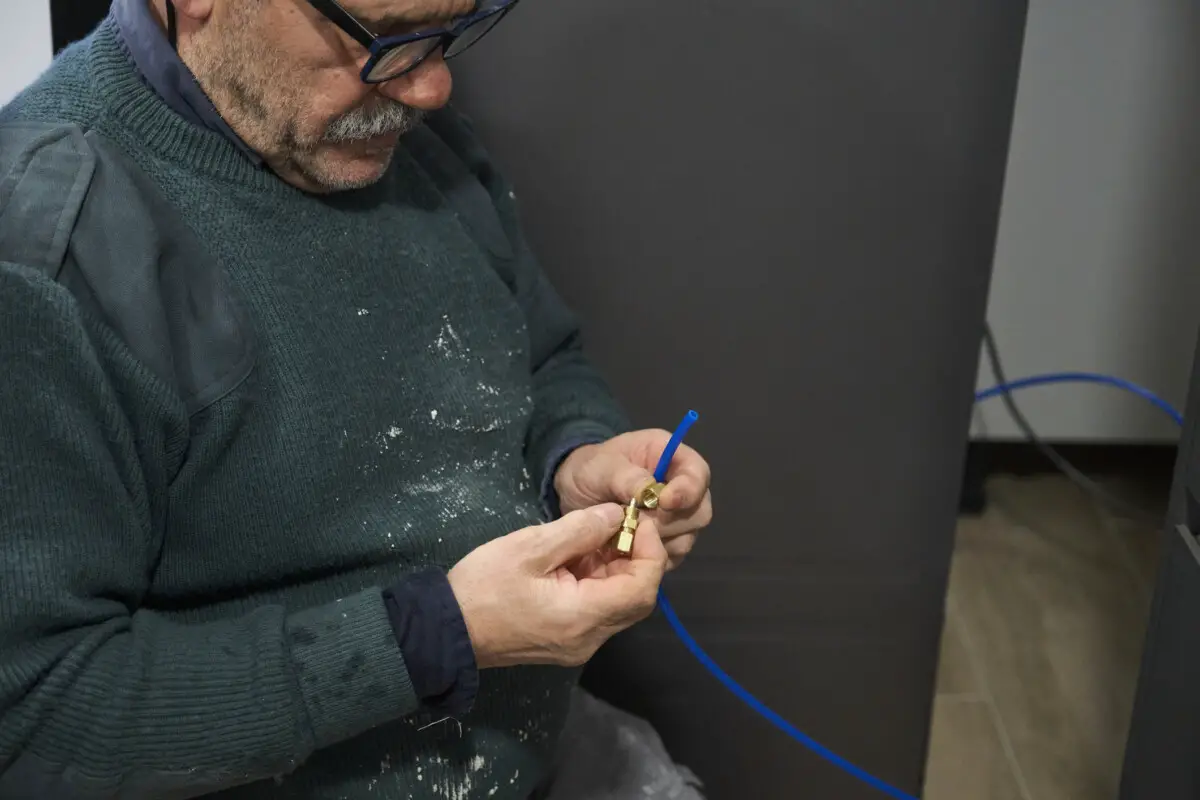
As we discussed earlier, your refrigerator filter has several parts with connections between them. If any of these connections are loose, it could easily lead to a water leakage.
To diagnose the issue, check the connections between the water supply line, filter, and refrigerator for any loose fittings or connections, and ensure all connections are securely fastened and tightened.
For solving this issue, simply tighten the connections that you find are loose. Depending upon the filter, you may need professional help at this stage. The user manual can certainly help, but do not tamper with a refrigerator filter if you are unsure of how to handle it!
2. Incorrect Installation
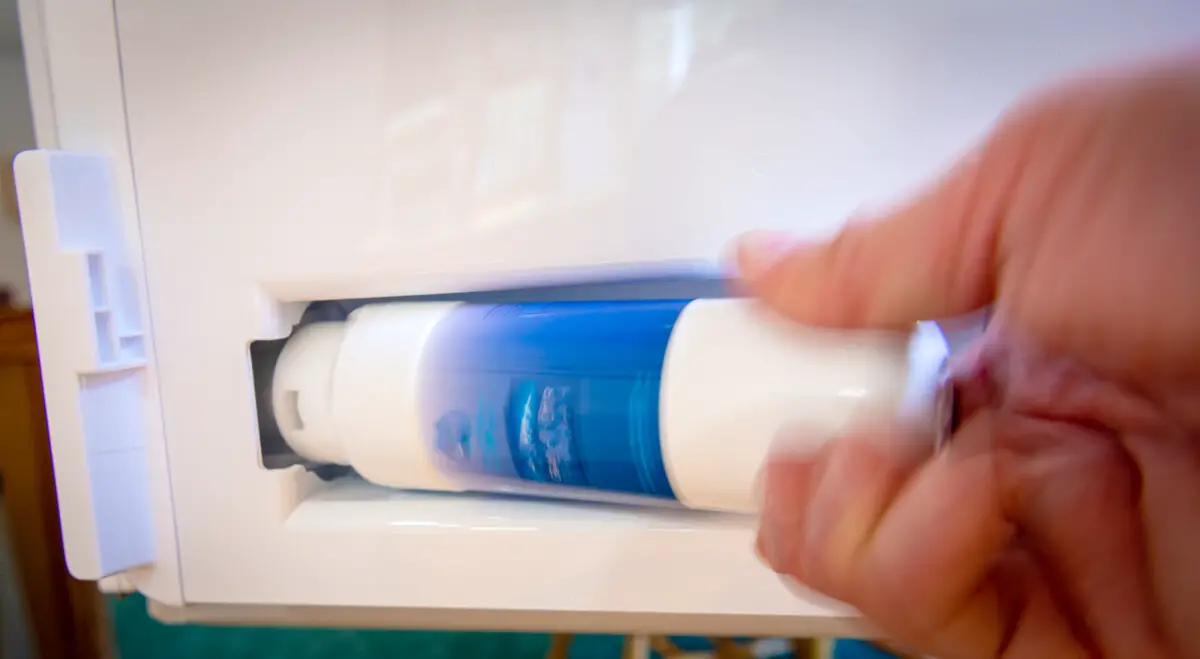
A common cause of a leaking refrigerator filter is improper installation. If the filter is not inserted correctly or tightly secured, it could easily lead to leaks.
This could be a potential cause when your filter appears to be leaking immediately or soon after you start using the refrigerator filter.
We recommend going through the user manual and rechecking if all the installation steps have been fully completed to solve this issue. You may need professional assistance with this as well.
3. Damaged O-Ring or Gasket
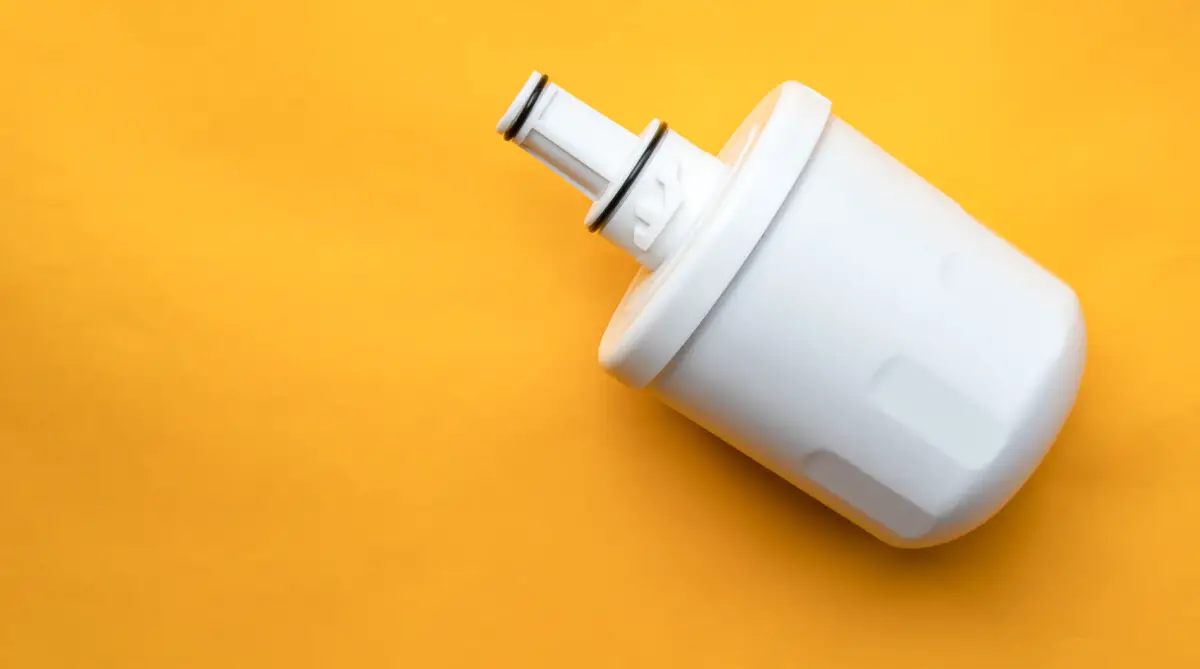
The gasket or O-ring is usually made of rubber, which allows it to create a watertight seal. Rubber, however, tends to become worn out or damaged over time. If the O-ring is cracked or the gasket is worn, water can thus leak from the filter.
A simple inspection of the gasket should generally be enough to let you know if this is the cause for water leakage from your refrigerator filter.
The solution is to simply replace the O-ring. You should be able to find replacement parts for most popular refrigerator filters quite easily on Amazon.
4. Clogged Filter
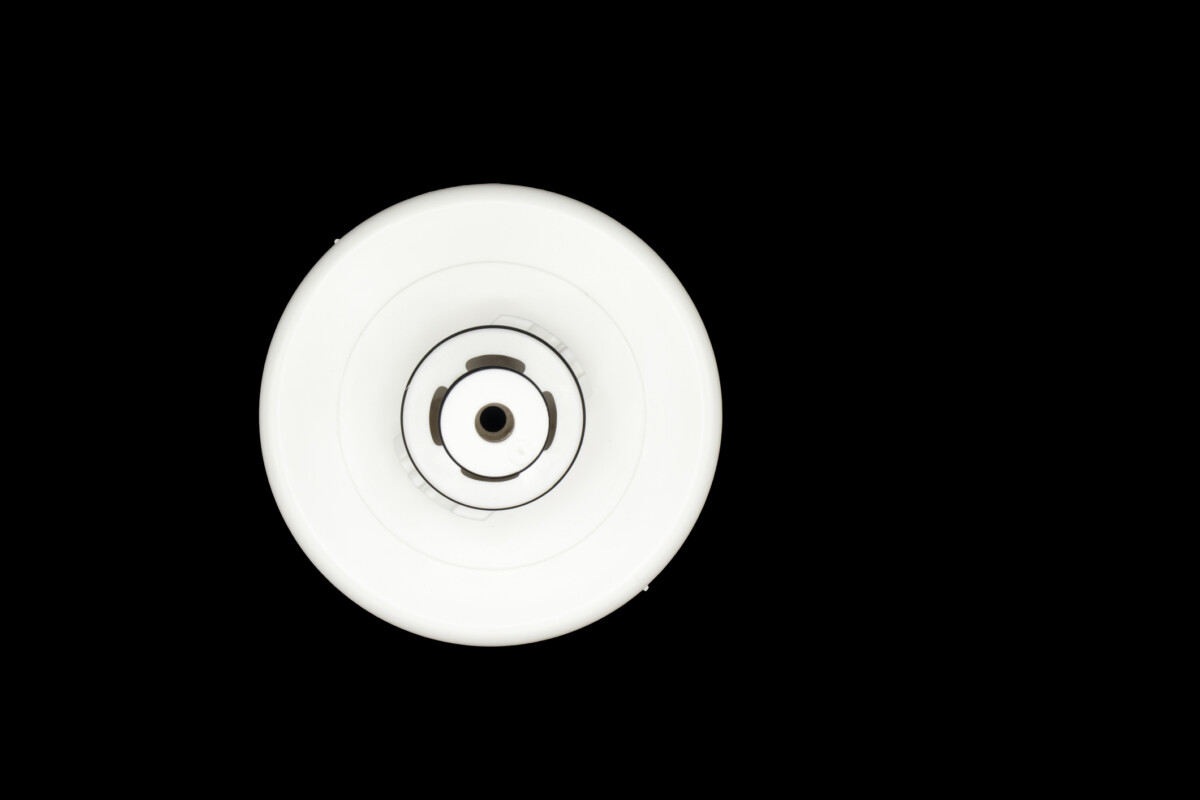
Over time, trapped impurities can clog the filter’s tiny pores. This causes pressure to build up in the parts preceding the filter, which could manifest as leaks from your refrigerator filter.
This could be the issue if your filter has not been replaced in a long time, or if the inflowing water is particularly contaminated. This is usually associated with a poor water outflow as well.
You will probably not be able to confirm if this is or isn’t the problem, but you can check the filter cartridge opening to see if any large particles are blocking it. Otherwise, make sure to regularly replace the filter to prevent clogging.
5. Cracked Filter Housing
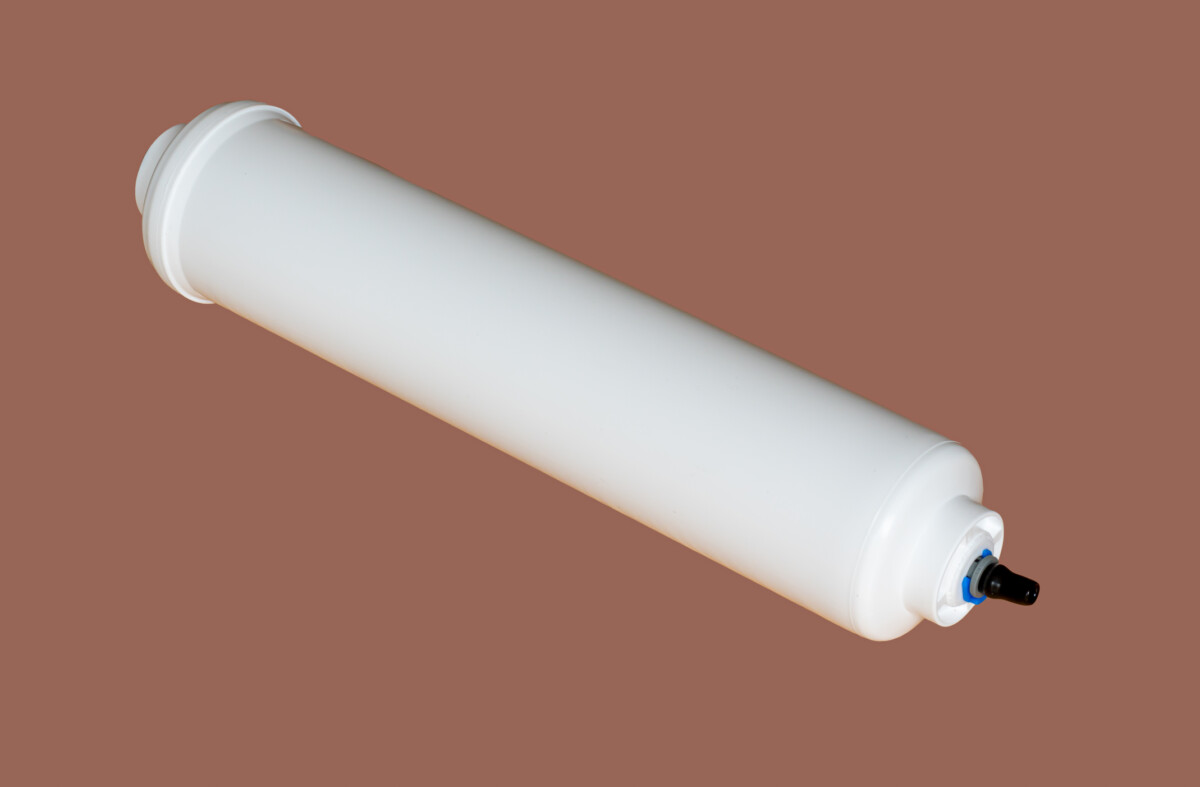
As we discussed earlier, the filter housing itself may develop cracks or damage, causing leaks.
Carefully Inspect the housing for any visible cracks or holes from which water may be leaking.
There usually aren’t too many ways to repair it if the housing is broken. You thus need to contact the manufacturer for a replacement housing specific to your refrigerator model.
6. Faulty Water Inlet and outlet valves
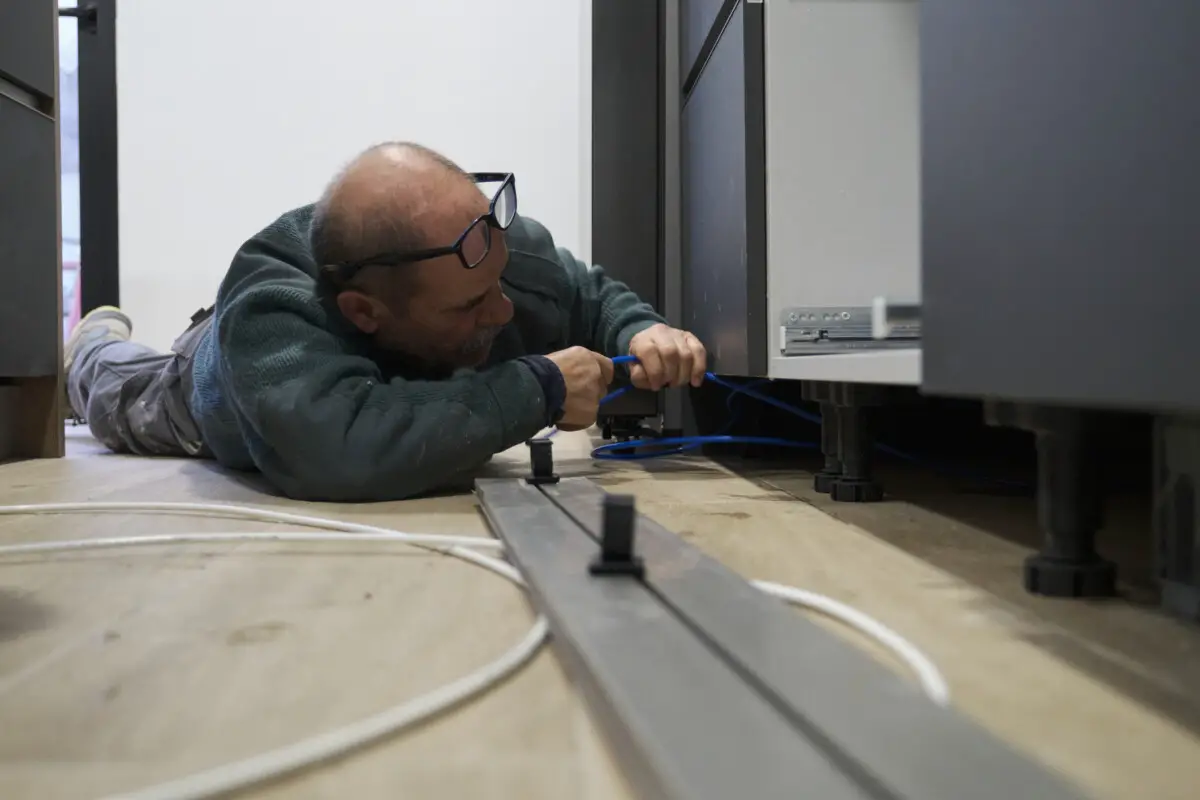
The water inlet valve controls the flow of water into the refrigerator and filter, while the outlet valve controls the flow outside. If either or these are defective, there could be a constant leak of water.
To solve the issue, we once again recommend going through the user manual and inspecting both the valves. For most brands, the solution is to replace the valves entirely, for which you may require professional assistance.
Brand Specific Solutions
The causes and the solutions we mentioned above for water leaking from your refrigerator filter are general guidelines that work for most major brands. In addition, here are some brand-specific points to note:
Samsung
Some newer Samsung refrigerator models have a handy built-in leak detector that can automatically shut off the water supply if a leak is detected. This should general appear as blinking lights or a beeping noise from your filter.
Whirlpool
Whirlpool refrigerator filters often require you to push the filter firmly into the housing, and you should be able to hear a click when the connection is made well.
GE
Unlike whirlpool, GE refrigerators often have twist-and-lock filters. Ensure that the filter is twisted tightly to create a proper seal.
LG
Similar to Samsung, most LG refrigerators have filters with indicator lights that can let you know when the filter needs to be replaced. There may also be error codes or blinking lights to detect leaks.
KitchenAid
KitchenAid refrigerator filters often have twist-and-pull type connections, which may be difficult to set but ensure a very watertight seal once done properly. You need to twist the filter counterclockwise to remove it and clockwise to install a new one.
Maytag
Maytag refrigerators typically come with push-button or quarter-turn filters. This means removing the filter for inspection often requires you to push a button, or twist the filter from its housing.
How to prevent leaks from my refrigerator filter in the future?
Here are some useful tips to follow to prevent leaks from your refrigerator filter in the future:
- Regularly replace the filter according to the manufacturer’s recommendations.
- Inspect the filter housing and connections periodically for any signs of damage or wear.
- Make sure the connections are not too tight or too loose.
- Make it a habit to consult the user manual before tampering with your filter.
- Use high quality, genuine parts for replacement.

